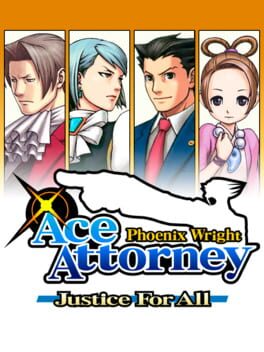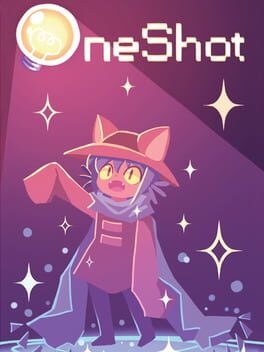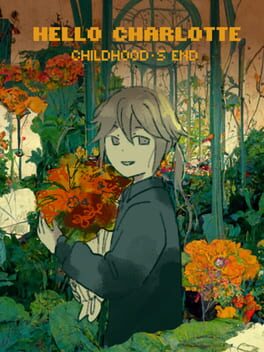KallenKupo
3 reviews liked by KallenKupo
This review contains spoilers
(Replay) When a game has this good a story, one of the best dungeons in the series, and an absolutely masterclass ost, it's a sight to behold.
The Hero of Time, further elevated by Majora's Mask, is far and away my favorite silent protagonist of all time. There's a reason my username is what it is. And furthermore, these two games combined are probably my favorite coming of age story of all time as well. The arc that Link undergoes in this game teaches that maturity is not solely dependent on your age or appearance. Forced to skip most of his impressionable years, Link has to undergo adulthood with the mind of a child and learn what it truly means to grow up. The Sages represent various challenges of adolescence, the situations Link finds himself in force him into responsibilities he shouldn't be ready for yet. And after all his experiences, he matures as a person despite reverting back to the body of a child, and the guardian that represented childhood innocence flies away forever to symbolize this. And let's not forget how well the game sets up Ganondorf's character and the rest of the timeline. The final boss is also still stunning to this day and gives me chills every time.
And yeah Water Temple is goated, no questions asked.
The Hero of Time, further elevated by Majora's Mask, is far and away my favorite silent protagonist of all time. There's a reason my username is what it is. And furthermore, these two games combined are probably my favorite coming of age story of all time as well. The arc that Link undergoes in this game teaches that maturity is not solely dependent on your age or appearance. Forced to skip most of his impressionable years, Link has to undergo adulthood with the mind of a child and learn what it truly means to grow up. The Sages represent various challenges of adolescence, the situations Link finds himself in force him into responsibilities he shouldn't be ready for yet. And after all his experiences, he matures as a person despite reverting back to the body of a child, and the guardian that represented childhood innocence flies away forever to symbolize this. And let's not forget how well the game sets up Ganondorf's character and the rest of the timeline. The final boss is also still stunning to this day and gives me chills every time.
And yeah Water Temple is goated, no questions asked.
i feel weird about rating this 5 stars. ill start with the bad. i really do not like turnabout big top. i don't think its irredeemably bad and i quite like acro and moe as characters, but the Pedophilic Love Triangle really just. dampens the whole thing for me and makes me not want to think about it.
the good absolutely outweighs this for me though. farewell, my turnabout is one of the best things i've ever had the pleasure of playing through. its genuinely peak fiction, no game has ever made me feel the sense of urgency it made me feel. the entire case feels like one long moral dilemma that culminated in my favorite climax of any case so far and made for one of the most satisfying endings i've ever experienced in a game. the 5 stars is basically for 2-4 alone. i do like the rest of the game, especially 2-2 which i think is also fantastic, but 2-4 is just on another level of storytelling.
favorite osts: this game somehow tops the first games ost in my opinion, again just dropping banger after banger. my personal favorites this time around are pressing pursuit variation and investigation core 2002.
the good absolutely outweighs this for me though. farewell, my turnabout is one of the best things i've ever had the pleasure of playing through. its genuinely peak fiction, no game has ever made me feel the sense of urgency it made me feel. the entire case feels like one long moral dilemma that culminated in my favorite climax of any case so far and made for one of the most satisfying endings i've ever experienced in a game. the 5 stars is basically for 2-4 alone. i do like the rest of the game, especially 2-2 which i think is also fantastic, but 2-4 is just on another level of storytelling.
favorite osts: this game somehow tops the first games ost in my opinion, again just dropping banger after banger. my personal favorites this time around are pressing pursuit variation and investigation core 2002.
Chrono Trigger
1995
I have always felt that Chrono Trigger earns its acclaim by what it doesn’t do. Really, the game feels downright barebones when comparing it to other RPGs of the time. Think about a massive game like Final Fantasy 6. What doesn’t that epic have? With dungeons within dungeons, two massive worlds to explore, and a titanic number of characters, a game like Chrono Trigger should not compete with Final Fantasy’s epic scale. Yet it does. So, how is it that Chrono Trigger can stand toe-to-toe with a game of that magnitude, maybe even surpass it?
By all accounts, Chrono Trigger should make people angry with its simplicity and restrictive gameplay. Up until the 11th hour, the story rides the rails. The five worlds you travel to are just window dressing to the next story event. When the game does open and allow you a bit of time travel freedom, it comes in the form of a handful of side quests. Most of these quests are small. Pick a quest, travel to a time period, kill a boss, get loot, the end. Lesser games would be criticized for the lack of content, but not Chrono Trigger. Why? The answer is intent.
Chrono Trigger has a very specific gameplan. It wants things to matter. No fluff. No roaming the world for collectables. No super boss exists just for the sake of the challenge. Every event, boss, and special item serves the story in some way. The rainbow shell side quest serves as a great example. You fight powerful bosses to get the most powerful gear, but the quest also uncovers a plot to usurp the throne. And this isn’t a plot tossed in out from left field either. It has specific connections to story events from way back at the beginning of the game, and it provides the Chancellor with motivations for his actions.
Each scene or location is planned out and has a purpose. At the Millennial Fair, you meet Marle. Together you take part in seemingly mindless tasks before meeting Lucca and starting the story proper. But these seemingly mindless tasks resurface at Crono’s trial and have story implications. When the time portal whisks away Marle to parts unknown, Lucca doesn’t take a day to gameplan with you or have a crisis of conscious about her machine. Nope. Crono gets on that tele-pad and off you go. When the game risks becoming monotonous, it throws in a race through the future wastelands. That is Chrono Trigger’s efficiency.
Character moments are quick, but impactful. Frog needs only a single scene to show us why he fights Magus but doubts his abilities. We don’t need more than that. No need to monologue or tell the player over and over about his motives. The game doesn’t even give him time to do so, because when he gets the Hero’s Medal and regains his confidence, its off to Magus’ castle. We barely need to hear about Magus’ reasons when he joins. His whole story was interlaced within the plot.
The gameplay also embraces this feeling of focus. Enemies move about visibly onscreen and most of the time can be avoided. Chrono Trigger basically asks you what you want to focus on in the moment. Need XP? Go fight. If not, then you move on. It simply does not have the time to surprise you with random battles every 5 seconds. Though some fights are scripted, they are the exception, not the rule.
I could go about the career defining music by Mitsuda, or the beautiful art by Toriyama, but I’ll let the countless other reviews handle that. To me, the success of Chrono Trigger lies in is design philosophy – a simplicity rarely found in modern games and especially the JRPG genre.
By all accounts, Chrono Trigger should make people angry with its simplicity and restrictive gameplay. Up until the 11th hour, the story rides the rails. The five worlds you travel to are just window dressing to the next story event. When the game does open and allow you a bit of time travel freedom, it comes in the form of a handful of side quests. Most of these quests are small. Pick a quest, travel to a time period, kill a boss, get loot, the end. Lesser games would be criticized for the lack of content, but not Chrono Trigger. Why? The answer is intent.
Chrono Trigger has a very specific gameplan. It wants things to matter. No fluff. No roaming the world for collectables. No super boss exists just for the sake of the challenge. Every event, boss, and special item serves the story in some way. The rainbow shell side quest serves as a great example. You fight powerful bosses to get the most powerful gear, but the quest also uncovers a plot to usurp the throne. And this isn’t a plot tossed in out from left field either. It has specific connections to story events from way back at the beginning of the game, and it provides the Chancellor with motivations for his actions.
Each scene or location is planned out and has a purpose. At the Millennial Fair, you meet Marle. Together you take part in seemingly mindless tasks before meeting Lucca and starting the story proper. But these seemingly mindless tasks resurface at Crono’s trial and have story implications. When the time portal whisks away Marle to parts unknown, Lucca doesn’t take a day to gameplan with you or have a crisis of conscious about her machine. Nope. Crono gets on that tele-pad and off you go. When the game risks becoming monotonous, it throws in a race through the future wastelands. That is Chrono Trigger’s efficiency.
Character moments are quick, but impactful. Frog needs only a single scene to show us why he fights Magus but doubts his abilities. We don’t need more than that. No need to monologue or tell the player over and over about his motives. The game doesn’t even give him time to do so, because when he gets the Hero’s Medal and regains his confidence, its off to Magus’ castle. We barely need to hear about Magus’ reasons when he joins. His whole story was interlaced within the plot.
The gameplay also embraces this feeling of focus. Enemies move about visibly onscreen and most of the time can be avoided. Chrono Trigger basically asks you what you want to focus on in the moment. Need XP? Go fight. If not, then you move on. It simply does not have the time to surprise you with random battles every 5 seconds. Though some fights are scripted, they are the exception, not the rule.
I could go about the career defining music by Mitsuda, or the beautiful art by Toriyama, but I’ll let the countless other reviews handle that. To me, the success of Chrono Trigger lies in is design philosophy – a simplicity rarely found in modern games and especially the JRPG genre.
3 lists liked by KallenKupo

















